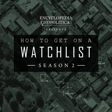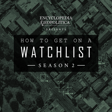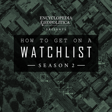
How to Stalk a Celebrity
In this episode, we speak with Dr. Angela Lewis and Caleb Gilbert on stalkers, bodyguards, protective intelligence, and the world of celebrities.
Dr. Angela Lewis is the Head of Global Intelligence, Investigations, and Threat Management for a talent agency that represents many of the most well-known sports and entertainment figures; she is also an adjunct professor and teaches intelligence courses for Georgetown University, the University of Cincinnati, and the University of New Hampshire. Prior to working in the private sector, Dr. Lewis served as a senior counterterrorism targeting officer in the CIA's Directorate of Operations with multiple tours abroad. She holds her PhD from Pepperdine University, where her studies focused on leveraging intelligence for strategic decision-making.
Caleb Gilbert is the Founder & President of White Glove Protection Group, with over two decades of experience in Executive Protection for clients across the Fortune 100 and 200, as well as Private Family Offices. His expertise spans Close Protection for A-List celebrities, ultra-high-net-worth individuals, and corporate protection and intelligence teams. A Certified Protection Specialist from Executive Security International, Caleb holds an Associate’s degree in Homeland Security and an undergraduate degree in Security Management from Southwestern College. He also earned a Graduate Certificate in International Security from Stanford University and a Master’s degree in Global Security Studies from Johns Hopkins University. Caleb makes numerous contributions to the Executive Protection community, including as Vice Chair of the ASIS International’s Executive Protection Community. In this role, he champions initiatives supporting Women in Protection, Mentorship, and Leadership Development. Caleb also serves on the Board of Directors for the International Protective Security Board (IPSB).
If you enjoyed this episode, don’t forget to subscribe on your podcast platform of choice. Please also consider supporting our work via a Patreon subscription (getting you access to early releases and other perks), or by tipping us on Ko-fi. While the topics we discuss here are often shrouded in secrecy and security classifications, we really hope you’ll tell your friends about us!






